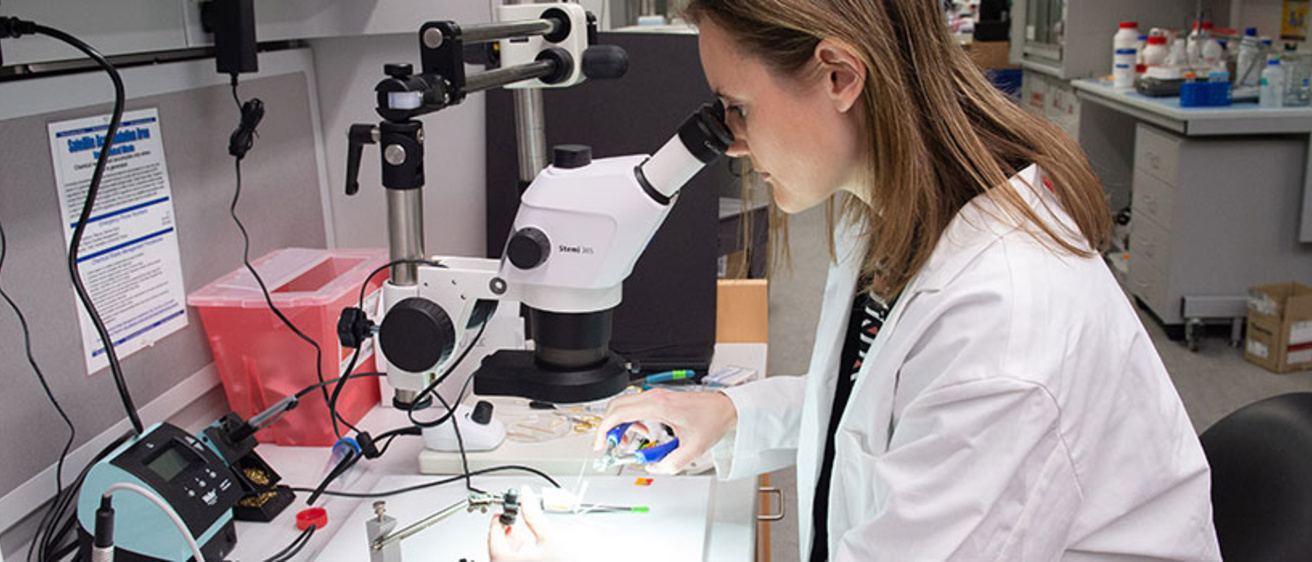
Hultman, who joined the UI faculty in 2019 when she was recruited to the Iowa Neuroscience Institute, will use the five-year, $2.3 million grant to study electrical networks in the brain that contribute to sensory hypersensitivity, a key aspect of many neurological and psychiatric disorders. Hultman also is a member of the Pappajohn Biomedical Institute at the UI.
The NIH Director’s New Innovator Award, established in 2007, supports unusually innovative research from early career investigators who are within 10 years of their final degree or clinical residency and have not yet received a research project grant or equivalent NIH grant. The awards are one of four categories of grant awarded through the NIH’s High-Risk, High-Reward Research (HRHR) Program that funds highly innovative and unusually impactful biomedical or behavioral research proposed by extraordinarily creative scientists. This year, the NIH has awarded 85 grants through this program. The 85 awards total approximately $251 million over five years, pending available funds.
“Dr. Hultman is highly deserving of this prestigious award that recognizes young scientists for conducting forward-thinking, innovative research,” says Ted Abel, PhD, UI professor and head of neuroscience and pharmacology, as well as director of the Iowa Neuroscience Institute (INI). “Her work has the potential to open up new ways of understanding and treating diseases that involve abnormal sensory processing, like migraine, autism spectrum disorder, and schizophrenia.”
The Iowa Neuroscience Institute was created with a $45 million grant to the UI from the Roy J. Carver Charitable Trust, and seeks revolutionary discoveries in fundamental neuroscience to translate an understanding of how the brain works into clinical treatments for disorders of the brain and nervous system.
Using sophisticated experimental tools to map and manipulate brain-wide networks of electrical activity, Hultman will map out these integrated networks on a timescale where neurons are actually firing.
“The novel thing about these "Electomes" is that they are both spatially comprehensive and temporally precise,” she says. “So, we are able to see, for the first time, how such activity is coordinated across the brain on a timescale consistent with flow of electrical activity through neurons firing across brain regions.”
The newly funded work will focus specifically on creating a comprehensive map of electrical activity of sensory hypersensitivity in an animal model of migraine, the most common neurological disorder in the general population. The research aims to identify the cellular and molecular factors that contribute to the organization of such networks.
“For brain disorders that involve coordination across multiple regions, there is evidence that ‘broken networks’ with abnormal flow of electrical activity is what causes different patients to become ill in different ways,” Hultman explains. “By identifying such activity and identifying ways to reverse it, the ultimate goal is to develop therapeutics tailored to a given individual's particular brain network problem.”
Funding for the awards comes from the NIH Common Fund; Eunice Kennedy Shriver National Institute of Child Health and Human Development; National Cancer Institute; National Human Genome Research Institute; National Institute of Biomedical Imaging and Bioengineering; National Institute of Dental and Craniofacial Research; National Institute of General Medical Sciences; National Institute of Mental Health; National Institute of Neurological Disorders and Stroke; and National Institute on Aging.
“The breadth of innovative science put forth by the 2020 cohort of early career and seasoned investigators is impressive and inspiring," said NIH Director Francis S. Collins, M.D., Ph.D. “I am confident that their work will propel biomedical and behavioral research and lead to improvements in human health.”
